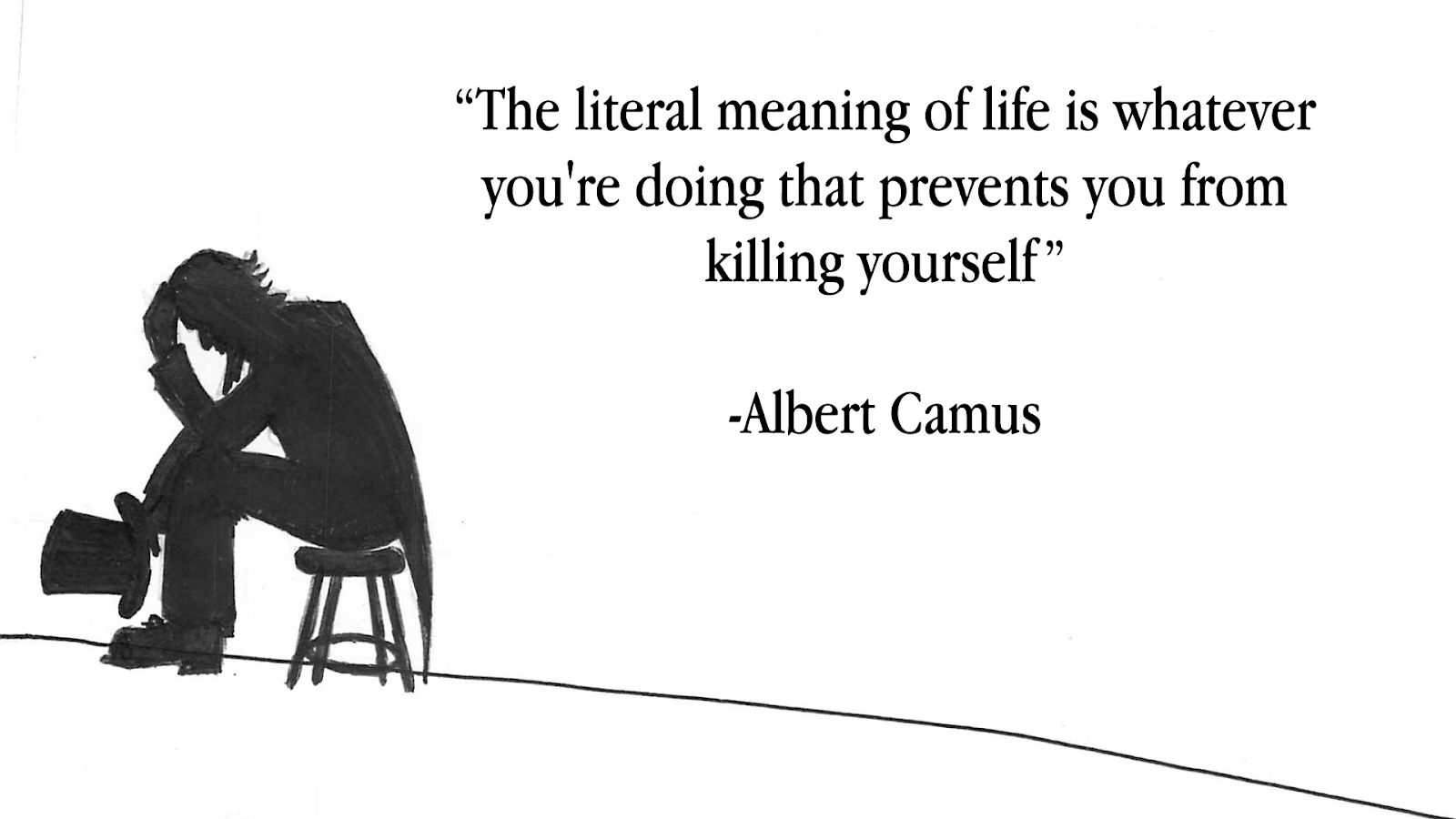Is Life Worth Living?
The short answer is that it depends on the liver. The poet James Thomson said, "this life holds nothing good for us, but it ends soon, and nevermore can be." He also said, "you are free to end it when you will." Thomson, along with others, shared the belief that if life is not worth living, you may end it as it will one day end anyways.
William James, the author of "Is Life Worth Living," says, "what reasons can we plead that may render such a brother or sister willing to take up the burden again." If one considers that life is not worth living, how can we convince them otherwise?

Is Life Worth Living? by William James
What Does Religion Suggest?
A large part of our beliefs on this particular topic comes from religion. Those who hold religious ideas may believe that suicide is wrong and mustn't be done. Most religions will believe in a God or Gods that are the creation of all and hold that truth in high value. They will also put their meaning of life in hopes of seeing an unseen world such as heaven.
Thomas Carlyle says that to see a healthy relationship in the universe, we must rebel against such ideas. Thomson agrees, saying, "who is most wretched in this dolorous place? I think myself, yet I would rather be My miserable self than He, Then He who formed such creatures to his own disgrace… from who it had its being, God and Lord creator of all woe and sin." James believes that when we let go of these firm beliefs, the idea of suicide is no longer monstrous but an immense relief.
Many believe that religion is an inner need to believe that nature is a sign of something more spiritual and eternal and higher power than that of earth. In saying this, religion could prove life to be just as worthy of living if we are confident in our beliefs and have the patience to see this unseen world.
Additionally, most religions are based on establishing a relationship with a higher being. With this, you live life in regard to that being. You work towards making a better world, a better life, and being a better person in the name of this being. That goal is what gives you meaning in life. And, in turn, makes life worth living.
At the same time, if you take away this assurance, this need to believe in something more being out there, you are bound to extinguish the radiance of life, and the suicidal mood will soon set in.
The Simple Joys in Life
Walt Whitman wrote a piece on the simple joys of living: "to breathe this air, how delicious; To speak, to walk, to seize something by the hand; To be this incredible God I am!" Whitman chose to focus on the simple pleasures of everything around him: air, sun, and earth. Things we merely take for granted.
Rousseau spent nine years at Annecy and wrote of his happiness there: "it was in no one assignable things: it was all within myself; it could not leave me for a single instant." Rousseau was able to experience such intense happiness in just how he lived. He even wrote about hard labor and leaving behind people with joy.
Both of these people wrote about simply finding happiness in the things surrounding them, which is William James's point toward the end. He writes, "Be not afraid of life. Believe that life is worth living, and your belief will help create the fact."
Hedonistic Calculus
Is life worth living? = (add up all the pleasure) - all the pain

Think of it as a scale. Does the pleasure outweigh the pain? Or is it the other way around?
If one lives in constant torture, then life is not worth living, for they would be better off dead. If you think back to Ch. 4 of a little of history, we read that Epicurus believes that death won't be something that happens to you, saying, "death is not an event in life,
Life is worth living if someone lives in constant joy and happiness. They would have no evidence otherwise.
What is Happiness?
Aristotle believed that true happiness did not come from a single incident but from added moments. He also answered the question "how should we live?" by saying that we should seek happiness.

But is a life long enough to seek true happiness? Seneca believed it was when faced with the remarks that life was too short; Seneca thought it was not too short. He says, "we are not given a short life, but we make it short, and we are not ill-supplied or wasteful of it. Life is long if you know how to use it."

Camus's Look on Life
Albert Camus believed that the answer comes from meaning instead of pleasure. He says, "judging whether life is or is not worth living amounts to answering the fundamental question of philosophy." Similarly, Socrates says that what we sincerely want is not to do something but to be something. Camus believes that happiness is temporary, but the meaning is not. He says that meaning has three-part: coherence, purpose, and significance.
The purpose is the pursuit of something important, a goal. It is a voluntary struggle.
Purpose gives us a reason to keep pushing.
Significance is the favorable judgment of one's life value. It is the sense that life is worth living.
Finally, coherence in making sense of the world. It is a structure in which to live. You must be stable in all aspects of your mind and physical beings.
So how does one achieve this lifestyle? Design a life in which you want to live. Spend your time wisely. Surround yourself with people you can trust. Determine strong personal values and decide on a purpose that works towards aspiring to those values.

In saying all this, you might be questioning where you stand altogether. I return to my first answer: it all depends on the liver.
Looking around at the world and the constant chaos we seem to be in, it is easy to answer the question with a "no." It is just as easy to forget the things that make it worth living. If you give yourself to the nightmares and evil in the world, then it is easy to get trapped in darkness. However, life is what we make it.
I do not intend to convince you that life is or isn't worth living. But to instead guide you towards making that choice on your own. To make that choice, you must look around at the life you live and your views on life.
If, in the end, you decide that life is not worth living, then you must then choose. Whether to change that. Or live in darkness.
However, if you initially believe that life is worth living or decide to change it, you must continue working towards that view. You must continue working towards achieving happiness or meaning, or living in a living religion, whichever view you decide.








.jpg/800px-Battersea_Arts_Centre%2C_Lavender_Hill%2C_SW11_(3324322940).jpg)



